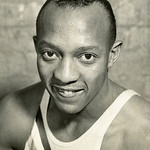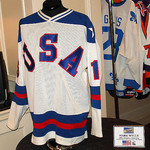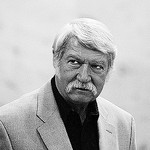We think of the Olympics as one of our greatest opportunities to see the top athletes perform on the world’s biggest stage.
But even if you tune in to every minute of the Olympic games, you only see a small piece of the picture. What about all the months, weeks, and hours these athletes, teams and coaches spend preparing? How did they go from being great-to becoming the best of the best?
Olympic Leadership
The answer lies in leadership. No matter what role you currently have or where you aspire to be, there’s a leadership lesson to be learned from the athletes, teams, and coaches.
As a venue operations manager at the Atlanta Olympics in 1996, I got to see first hand what it takes to win gold, and learned some lessons about leadership along the way.
The following are lessons I’ve gleaned from that Olympics as well as many others, as key principles shine through each time.
1. Focus: Jesse Owens, U.S. Track and Field Athlete
 Learning how to focus isn’t something you do just when the pressure’s on. Focus is something leaders practice day-in and day-out by being present in the moment, and not letting challenges that crop up get in the way. A terrific example is is American track and field athlete Jesse Owens. Owens won four gold medals at the 1936 Olympics in Berlin, a triumph for the United States as Hitler and host Germany contended that their race was superior. Owens’ focus on reaching his goals despite the odds and discrimination he faced in a hostile environment, displayed the courage, perseverance, and humility of a true leader.
Learning how to focus isn’t something you do just when the pressure’s on. Focus is something leaders practice day-in and day-out by being present in the moment, and not letting challenges that crop up get in the way. A terrific example is is American track and field athlete Jesse Owens. Owens won four gold medals at the 1936 Olympics in Berlin, a triumph for the United States as Hitler and host Germany contended that their race was superior. Owens’ focus on reaching his goals despite the odds and discrimination he faced in a hostile environment, displayed the courage, perseverance, and humility of a true leader.
2. Buy-In: U.S. Men’s Ice Hockey Team
 The 1980 US Men’s Ice Hockey Team provided the most improbable and exciting upset in sports history. The “Miracle on Ice” saw the American roster of collegiate hockey players take down the U.S.S.R. with a shocking 4-3 win in the semi-final game and gold medal victory over Finland in the final at Lake Placid, NY. This team is a case-study on what true buy-in to a team goal looks like. Each player on the U.S. team understood their role and trusted in one another as they bought into the team thanks to head coach Herb Brooks. The victory showed how a group can come together and accomplish even the most difficult tasks with determination and hard work.
The 1980 US Men’s Ice Hockey Team provided the most improbable and exciting upset in sports history. The “Miracle on Ice” saw the American roster of collegiate hockey players take down the U.S.S.R. with a shocking 4-3 win in the semi-final game and gold medal victory over Finland in the final at Lake Placid, NY. This team is a case-study on what true buy-in to a team goal looks like. Each player on the U.S. team understood their role and trusted in one another as they bought into the team thanks to head coach Herb Brooks. The victory showed how a group can come together and accomplish even the most difficult tasks with determination and hard work.
3. Preparation: Bela Karolyi, Gymnastics Coach
 If you fail to prepare, you prepare to fail. And what does preparation entail? Discipline, sacrifice, perseverance and commitment, just to name a few. Those characteristics are what makes Bela Karolyi one of the greatest coaches in Olympic history. Karolyi led the Romanian and US women’s gymnastics teams to medal-winning success and coached nine Olympic champions in his career. From Romanian Nadia Comaneci to Americans Mary Lou Retton and Kerri Strug, Karolyi has been able to bring out the best in his athletes time and time again.
If you fail to prepare, you prepare to fail. And what does preparation entail? Discipline, sacrifice, perseverance and commitment, just to name a few. Those characteristics are what makes Bela Karolyi one of the greatest coaches in Olympic history. Karolyi led the Romanian and US women’s gymnastics teams to medal-winning success and coached nine Olympic champions in his career. From Romanian Nadia Comaneci to Americans Mary Lou Retton and Kerri Strug, Karolyi has been able to bring out the best in his athletes time and time again.
Watch For It
Leadership traits and qualities displayed by these great Olympic individuals, teams and coaches can also be applied by today’s leaders in their quest for excellence and success in the business world.

Fortune 500 companies regularly bring in professional coaches to talk to their companies about teamwork, goal setting, buy-in, identifying your strengths and weaknesses, learning from your experience.
As you watch this year’s Olympic games, don’t just watch for who wins. Take a look at all of the athletes, teams and coaches. What leadership characteristics do you see?
Bob Prior and gymnast Mary Lou Retton
during the the 1996 Atlanta Olympics.
Want More? Related Articles:
- Five Practices of Exemplary Leadership
Explore practices that have led to success for all types of leaders. - Five Things Every Modern Leader Should Know
We’ve all studied great leaders through the years. Nelson Mandela. Gandhi. Napoleon. But what qualities are necessary for leaders in the world today? - 5 Leadership Skills We Can Learn From 5 Great NFL Coaches
Charged with everything from building a team from the ground up to managing strong personalities, there’s a lot to learn from star NFL coaches.




